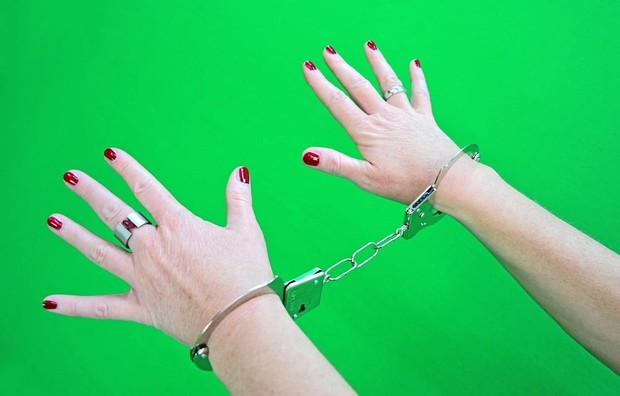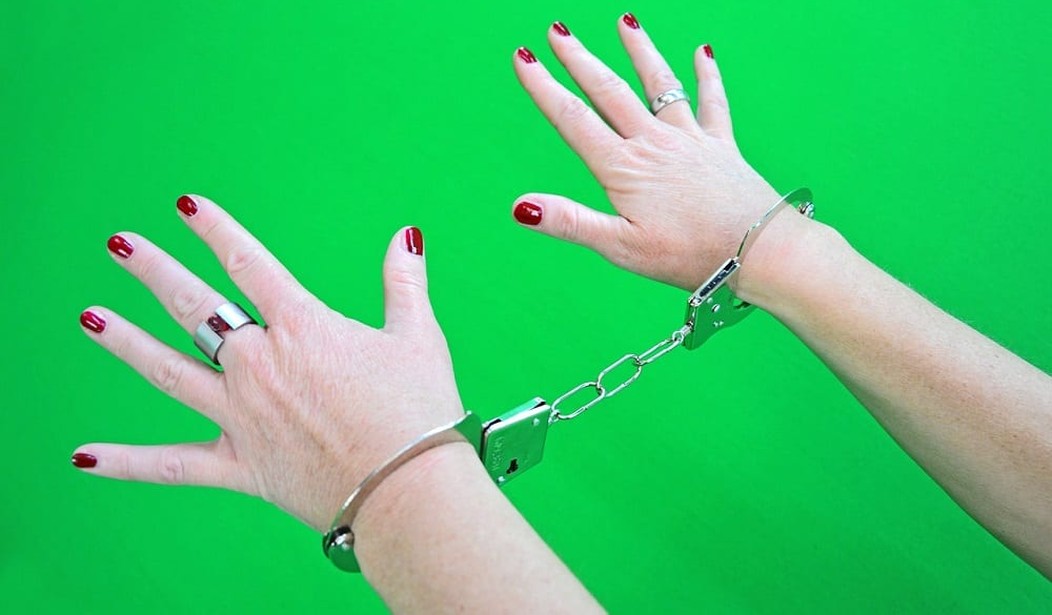
In the realm of false accusations, being falsely accused of rape is only exceeded by being falsely accused of child molestation in both public opprobrium and difficulty in defending one’s self. Little evidence is needed these days beyond the word of the alleged victim. It is nearly impossible to defend yourself because attacking the veracity of the accuser is not going to play well with a jury, many of which have absorbed the “believe women” mantra just as they hewed to the “believe children” belief during the pre-school sex abuse hysteria in the 1980s. Often the time lag between the incident and the allegation is years or decades (ask Bill Cosby). (I was in Alabama at the same time that Roy Moore was accused of being overly friendly with high school girls and if I’d been accused of the same thing there is literally no way I could prove my innocence.) Should you survive the process without being incarcerated, your reputation is trashed and you’ll be damned lucky to work again because the allegation is forever associated with you via the good offices of Google and the presumption will forever be that you did it but beat the charges.
So it was more than a little shocking to find that the #MeToo brigade has now taken up the cause of women who falsely accused men of rape and were convicted of the offense. Headline: Vulnerable Women Are Routinely Prosecuted – And Imprisoned – For False Rape Claims In The UK.
The rape case against Rhiannon Brooker’s ex-partner had fallen apart.
Rhiannon had accused him of assaulting her numerous times over a two-year period, but detectives had found discrepancies in her story shortly after they arrested him, so prosecutors dropped the charges.
Elsewhere around the world, that would have likely been the end of it. Not in Britain.
Instead, one afternoon in January 2012, police in Bristol, a city in southwest England, called the 28-year-old back to the station for another interview. Rhiannon thought the purpose of the meeting was to bolster the case against her ex. Police were indeed trying to make a case – against her.
What Rhiannon did not know as she answered the detectives’ questions was that she was now suspected of perverting the course of justice by fabricating her allegations. The crime carries a maximum sentence of life in prison.
…
Rhiannon left the police station completely unaware the authorities were hoping to arrest her as soon as possible. By 2014, Rhiannon was on trial. She pleaded not guilty to perverting the course of justice but was convicted and sentenced to three and a half years in prison, separating her from her 9-month-old baby. The judge declared that she had lied in a “completely wicked” way.
Rhiannon is now a convicted criminal, virtually unemployable and forever tarred as a liar.
And that is entirely appropriate because she is a liar and she should be an convicted criminal and the miscarriage of justice here is that she was not forced to serve as long in prison as she’d hoped to put her boyfriend away for.
The policy is meant to restrain law enforcement from going after people who did not make clear and malicious accusations, those who are young or mentally ill, or those who have experienced past abuse.
But BuzzFeed News today exposes how prosecutors routinely fail to follow these rules as they send vulnerable women to prison. Our investigation can reveal:
- At least 200 women in the UK have been prosecuted for lying about being raped in the past decade, according to a BuzzFeed News analysis of press reports. Most of these women were sent to prison, dozens of them with sentences of two or more years.
- Prosecutors went after teenagers, and women who reportedly had mental health issues, had experienced past physical and sexual assault, or were grappling with drug and alcohol addiction.
- Women were prosecuted even when they reportedly went to police only under pressure, quickly recanted, or never named their attacker at all.
- The CPS has prosecuted women who police were not sure had lied. In one instance detectives declined to charge the woman for making a false complaint. Prosecutors went ahead anyway.[Michael Flynn can give you more details on how this works out.]
All of these things are what would be called matters of extenuation and mitigation. They have nothing at all to do with whether a person should be charged and imprisoned if they are convicted. If a person is too freakin deranged to be responsible for their actions, they were too bonkers to be taken seriously in the first place.
Britain’s approach stands in stark contrast to that of the US, Australia, Canada, and other European countries. Women in these countries do not typically face prosecution – let alone prison – for lying about rape, state prosecutors and experts said, because it’s not considered to be in the public interest. Norway’s public prosecutions authority, for example, said its priority is encouraging more victims to come forward and warned that “a low threshold for opening a false accusation case could counteract this goal”.
I think, by and large, the British police system is broken and so focused on political correctness that it doesn’t give a rat’s ass about protecting most British citizens. But even a stopped clock is right twice a day.
Encouraging false accusations of rape and sexual assault by giving a free pass to liars is not a way of achieving justice unless your concept of justice includes convicting men based on perjured testimony. We’ve seen how this system works with the campus Title IX star chambers that literally prevent men from defending themselves.
My long time preference for liars who put other people’s lives and freedom in jeopardy–be they policemen, prosecutors, judges, or alleged victims–is that they be sentenced to the maximum sentence that could be meted out to their victim. Rather than trying to make martyrs of these horrible psychopaths, BuzzFeed would do better to stick to cat videos.
=========
=========
Like what you see? Then visit my story archive.
Follow @streiffredstate
I’m on Facebook. Drop by and join the fun there.
=========
=========












Join the conversation as a VIP Member